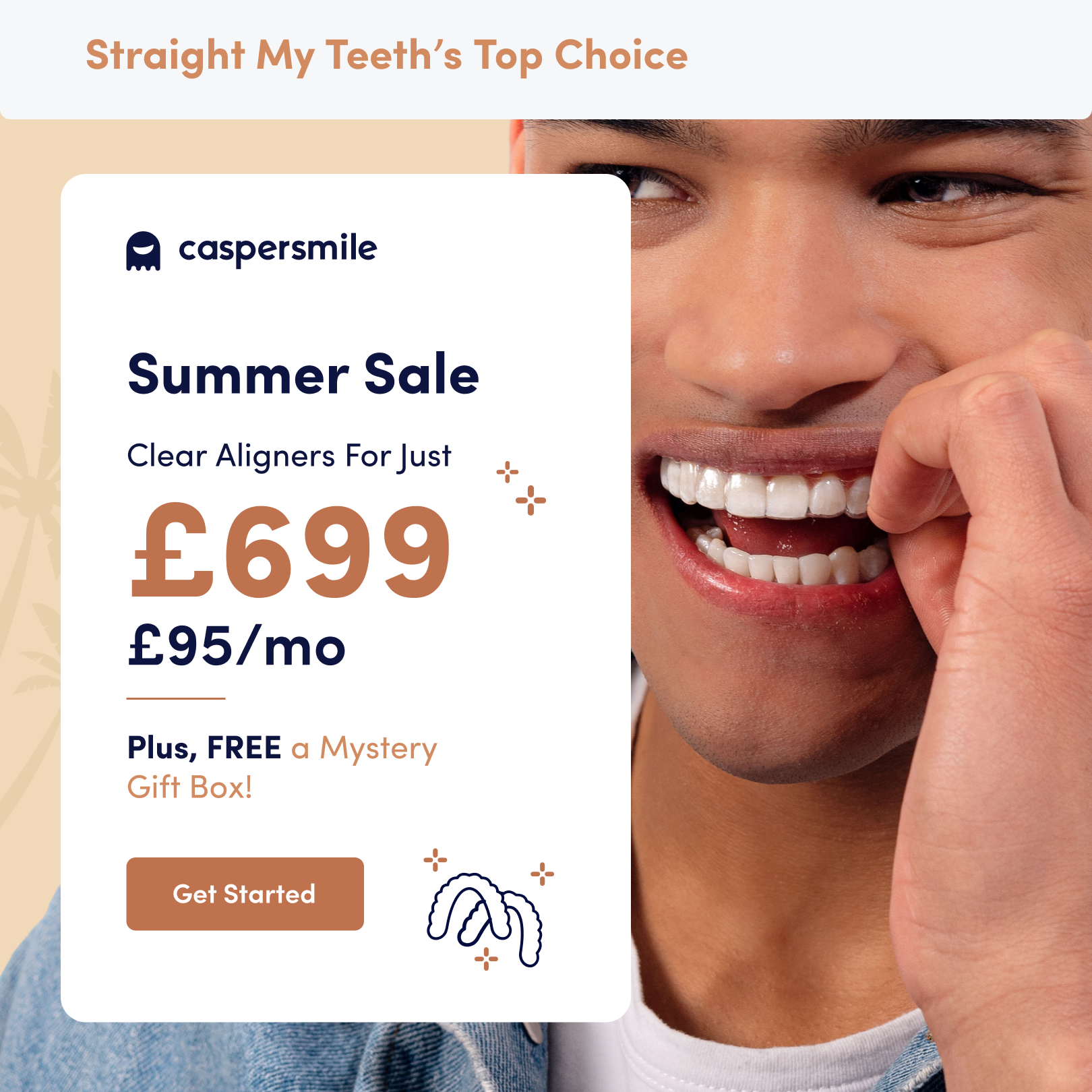
If we had a penny for every time someone didn’t smile fully out of shame for displaying their crooked teeth..! It also doesn’t help that crooked teeth offer a sanctuary for harmful bacteria to settle and grow in your mouth. Don’t you just wish you could stop your teeth from moving into a crooked position? While teeth aligners can help you fix crooked teeth, we dig deeper to find out what causes them in the first place.
.png)
Eating unhealthy foods can weaken your teeth because they don’t contain the correct amount of vitamins. Food which contains fibre such as fruits, vegetables, etc. is good because it toughens up your gums and helps remove plaque from your teeth.
On the other hand, anything high in sugar has a bad effect on teeth such as chocolates, juice, candy, etc. are harmful to your teeth. Not having your teeth checked at least twice a year by a dentist can sometimes result in issues such as gum disease or cavities. This can lead to crooked teeth which negatively impact your general health if you don’t get them fixed on time. Try to avoid junk foods and stay cavity-free to keep your teeth straight and healthy.
Habits that can damage your teeth are as follows:

It’s a condition in which people grind or clench their teeth. It is a dangerous habit that significantly affects dental health. There are two types of bruxism, during sleep bruxism or you are awake.
If your kids are clenching or grinding their teeth stop them because, in future, teeth straightening can be painful if you choose metal braces. But with new technology such as invisible braces, there is no need to worry since they have many advantages over traditional braces. Invisible braces are safe, comfortable, low cost and less painful for your child to wear. We recommend invisible aligners only for those who have permanent teeth and have lost all of their baby teeth.
Bruxism affects your dental health in many ways;

One of the main reasons people suffer from gum disease and tooth decay is incorrect brushing and flossing which are the two leading causes of tooth loss. If teeth are unaligned it creates trouble in brushing teeth hence, leads to plaque formation that leads to gum disease.

Since adolescence, thumb sucking is a habit that has been held by many individuals and it can have major implications on your smile. The thumb-sucking impact on your teeth will not be severe until your permanent teeth begin to develop. Sucking the thumb in this period may lead to misalignment of teeth. When you suck your thumb, you push your upper teeth forward.
Habits like nail biting, tongue thrusting, and sucking finger are the consequence of bad childhood oral habits. Thumb sucking can shred the teeth’s alignment and can lead to an expensive dental job in the future.
The types of unalignment caused by thumb sucking are open bite and overbite.
Open bite means the upper and lower teeth don’t touch when the mouth is closed. Overbite means when the upper front teeth overlap with the lower front teeth.

Invisible aligners are the best and most modern solution that is being used to treat crooked teeth. Clear aligners straighten teeth, a series of nearly invisible, removable aligners that are custom-made and fit perfectly over your teeth. The advantage of using invisible aligners for teeth straightening is that they are virtually invisible and do not contain poking wires and brackets. On top of that, braces cost far more than aligners.

After your aligner treatment gets over you will start wearing a retainer which is worn to keep the teeth in their newly aligned position. After completing with clear aligners, you need to wear the retainer for a while to keep the teeth stable until the jaw and gums grow around the new position. If you are not wearing your retainer your teeth will start moving back to their original position so it will be a waste of money spent on the treatment.
To find out whether you’re a suitable candidate for invisible braces, simply fill out our 30 seconds free assessment. You’ll have your answer within a couple of minutes!
Curated the best for your knowledge
Trench mouth, or necrotising ulcerative gingivitis, is an extremely painful and fast-developing form of gum disease. People with trench mouth often experience severe gum swelling and persistent bad breath, yet many are unaware that these symptoms point to a serious underlying oral health condition. Unless treated properly, trench mouth can worsen to the point of creating irreparable damage.
Read MoreCleaning your night guard isn’t just about keeping it looking clear. It directly affects your oral health, breath, comfort, and how long the guard lasts. A poorly cleaned night guard can quickly become unhygienic, uncomfortable, and even harmful to your gums and teeth.
Read More.webp) Can You Make a New Retainer from an Old One
Can You Make a New Retainer from an Old OneFinally, you have completed your orthodontic journey. Your braces are removed, your teeth have been straightened, and the months of wearing rubber bands, tightening, and using aligners have worked. You look in the mirror, take a deep breath, and smile; your teeth look great! But then your heart starts racing when you open your retainer case and realize it’s gone. Or even worse, your retainer is either broken, warped, or discolored.
Read MoreQuick Links

Heading